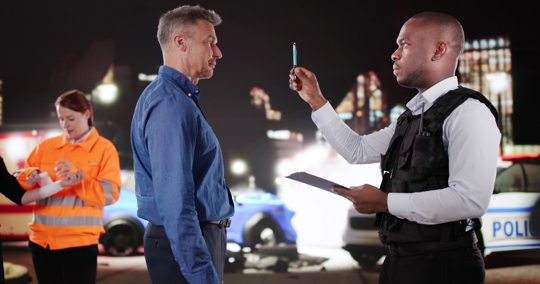Facing a DUI (Driving Under the Influence) charge in Massachusetts can be a daunting experience with serious legal consequences, including fines, license suspension, and even jail time. However, there are several strategies that can be employed to fight a DUI charge and potentially reduce or dismiss the charges. At DeGiacomo & Mikhlin, P.C., we provide experienced legal defense for DUI cases. Here’s a guide on how to fight a DUI charge in Massachusetts.
Challenging the Traffic Stop
One of the first areas to examine in a DUI case is the legality of the traffic stop. Law enforcement must have reasonable suspicion to pull you over. This means they must have observed a traffic violation or suspicious driving behavior. If the stop was conducted without reasonable suspicion, any evidence obtained during the stop, including the results of field sobriety tests or breathalyzer tests, may be suppressed.
Questioning Field Sobriety Tests
Field sobriety tests (FSTs) are commonly used to assess a driver’s level of impairment. However, these tests can be unreliable and subject to various external factors such as poor weather conditions, uneven surfaces, or the individual's medical conditions. An experienced attorney can challenge the administration and interpretation of these tests, arguing that they were not conducted according to standardized procedures or that the results were inconclusive.
Examining Breathalyzer Accuracy and Procedure
Breathalyzer tests measure blood alcohol concentration (BAC) and are a key piece of evidence in DUI cases. However, these devices must be properly calibrated and maintained. An attorney can request maintenance records and operator logs to determine if the device was functioning correctly. Additionally, the officer administering the test must follow specific protocols. Any deviation from these protocols can result in the test results being challenged.
Investigating Blood Test Results
In cases where a blood test was conducted, the accuracy of the results can be contested. Blood samples must be collected, stored, and analyzed according to strict procedures. Contamination, improper storage, or delays in testing can compromise the accuracy of the results. A defense attorney can investigate these aspects and potentially argue for the exclusion of the blood test evidence.
Arguing Lack of Probable Cause for Arrest
To arrest a driver for DUI, the police must have probable cause to believe that the driver was impaired. This can include observations of slurred speech, the smell of alcohol, or erratic behavior. If the defense can demonstrate that there was insufficient probable cause for the arrest, any evidence obtained afterward may be deemed inadmissible.
Presenting Medical Conditions or Other Explanations
Certain medical conditions, such as diabetes or acid reflux, can produce symptoms or breath test results similar to those of alcohol impairment. An attorney can present medical evidence to explain why a driver may have appeared impaired or had a high BAC reading without actually being under the influence.
Exploring Alternative Sentencing or Diversion Programs
In some cases, especially for first-time offenders, it may be possible to negotiate a plea agreement that includes alternative sentencing or participation in a diversion program. These programs may include alcohol education classes, community service, or probation. Successfully completing the program can lead to reduced charges or even dismissal.
Conclusion
Fighting a DUI charge in Massachusetts requires a thorough understanding of the law and a strategic approach to challenging the evidence presented by the prosecution. At DeGiacomo & Mikhlin, P.C., we are dedicated to providing strong legal defense for our clients facing DUI charges. If you have been charged with a DUI, contact us today for a consultation. We are here to protect your rights and work towards the best possible outcome for your case.

